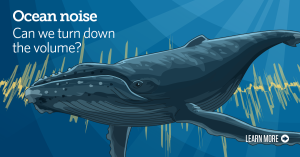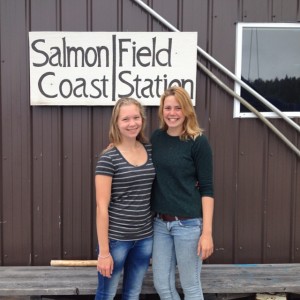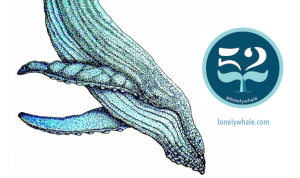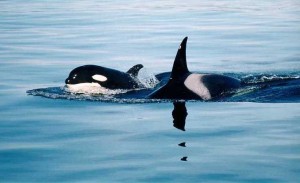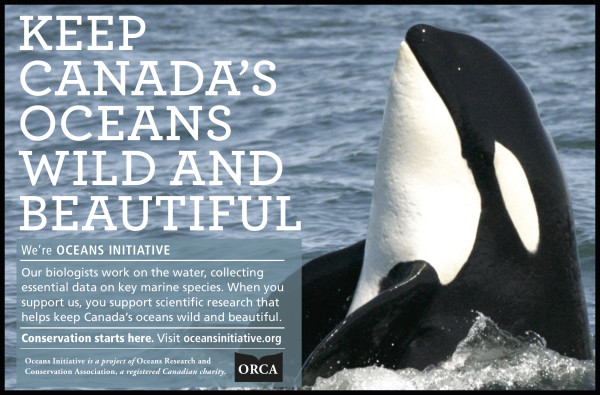
OK. Every day is Oceans Day around here, but today is the day when people around the world celebrate the 70% of the planet’s surface that provides the oxygen we breathe, the food we eat, home for the whales & dolphins we love to study, safe transportation for internationally traded consumer goods, and a place to reconnect with what’s wild and most important to us.
This year, we were thrilled that our good friends at The Walrus Magazine gave us space for an ad to tell their readers about the work that we do. We were blessed to work with the wildly creative team of Kelly Kirkpatrick and Rachel Connell, who were able to tell the story of our life’s work in a half-page ad. We want our conservation science to be useful, and The Walrus is read by the people who make decisions about environmental issues in Canada. We are grateful to Walrus, Rachel & Kelly for helping us to reach an audience who will never read our (important, but math-heavy) scientific publications.
This year, on World Oceans Day, we encourage you to think about how your own consumer decisions affect ocean wilderness. National Geographic has come up with a powerful list of 10 simple things you can do to save the ocean. We’d consider adding an 11th point: buy locally. This reduces the carbon and ocean noise footprint on the goods you buy. Their 7th point, Support Organizations Working to Protect the Ocean, obviously resonates for us. We’d be honoured if you’d consider our organization when making your charitable donations this year. All donations are tax deductible in Canada or the US, and our low overhead means that more of your charitable dollars go toward the mission of science-based conservation of the ocean and its wildlife.
If you prefer, please consider donating Aeroplan miles to our charitable pooling account with Aeroplan’s Beyond Miles program. That allows us to cut costs and direct more funds toward our mission.
Please tell us how you’re already celebrating World Oceans Day. What are you doing to celebrate the ocean today? We’d love to hear from you.

